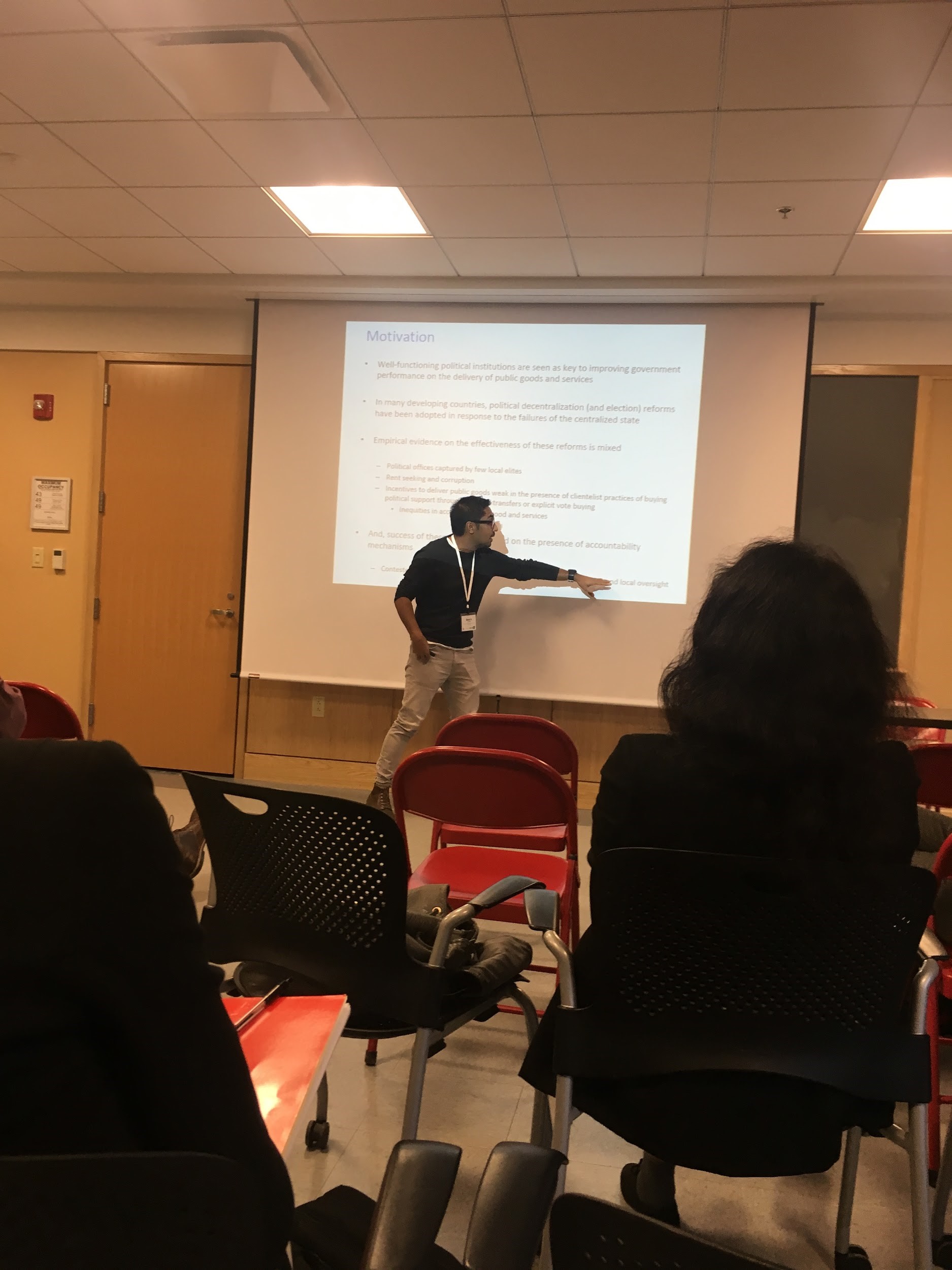Institutions and Political Economies was one of the most represented themes among the 168 papers presented at NEUDC. Research topics under this theme explored the long-term effects of historic regimes, as well as diverse political-economic issues for current regimes, including legislative issues, incentives, and regulation.
Historical regimes and their long-terms effects
Using data from Ghana, Remi Jedwab showed that earlier research overestimated the importance of colonial missionaries in Africa for long-term development. Missionaries settled in high-income areas, so the presence of missions corresponded with better locations. Their expansion, in turn, was driven by spatial patterns of development, and this endogeneity led to an overly optimistic account of their importance in the context of development. Jonathan Lehne found that the colonial history of India still has an effect on economic development. In particular, areas subjected to opium cultivation directly under British rule are to this day characterized by less income, lower literacy rates, and little access to public goods. There is, however, no evidence of lower development outcomes in areas that had opium cultivation but were a part of the princely states. In contrast, Esteban Méndez-Chacón found that the United Food Company (UFCo), a multinational corporation in Costa Rica, had a positive effect on the economy. Households in former UFCo areas now have better housing, sanitation, education, and consumption capacity. Priya Mukherjee’s paper took a slightly different path and studied the effect of private enterprises during the Dutch colonial period in Java, finding that weaker economic outcomes and institutions as a result of these enterprises persist to this day. Though the results are varied and geographically diverse, we can see that there is indeed a long-term effect of historical institutions on economic development.
The importance of trust in current regimes
Michele Valsecchi studies how dispersion of ethnic populations affects various outcomes – and shows that for countries in which these groups are more dispersed, governments are more effective and more trusted. Alex Armand used the recent discovery of natural gas in Mozambique to show evidence of the “resource curse”; specifically, that rent-seeking increases when information is not given to citizens, and an informed population increases mobilization, trust, demand for political accountability and stability. Finally, Sabyasachi Das uses data from 421 ethno-country minority groups across 92 democracies, collected from 1946 to 2013, to shed light on how electoral systems may affect power inequality and well-being. The size of minority groups has no relation to the group’s representation in the national government under proportional electoral systems. However, in majoritarian electoral systems political representation is more likely to correspond with minority size.
Legislative issues, incentives, and effective regulation
Serena Cocciolo presented her work on whether experiencing inclusive institutions changes citizens’ evaluation of participatory governance; she finds that the majority of citizens in Bangladesh prefer to take common decisions via democratic and inclusive institutions. These positive evaluations of participatory governance are reinforced by exposure to a community-driven development program. Slesh A. Shrestha and his colleagues study governance in the south Indian state Tamil Nadu, and find that rewarding politicians’ political incentives – either through public recognition or by increased access to public funding – enhances the motivation of these politicians to improve public policy.

Examining whether political quotas increase government representation of people belonging to a specific political identity, Chitra Jogani finds that quotas lead to political candidates who are less likely to have criminal records, and that have lower wealth but similar education levels. She emphasizes that the caste quotas increase the representation of women in politics. Next, Alexander Poulsen and Carlos Varjão found that in Brazil if mayors face stronger opposition from the legislative body, there is less corruption and more legislative oversight. Ridwan Karim found, also in Brazil, that 2007 voter re-registration reform to curb vote buying increased not only political competition but also health care expenditures. Mrithyunjayan Nilayamgode and his colleagues found that alcohol regulation in the Indian states of Bihar and Jharkhand has a positive impact in the reduction of violent crimes, but not on non-violent crime. Lastly, Aaditya Dar described how, likely due to misallocation of funds, electing dynastic politicians – which he calls ‘parachuters’ – leads to 0.2% point lower annual GDP growth compared to self-made politicians – or ‘climbers.’

